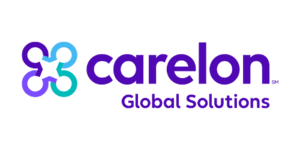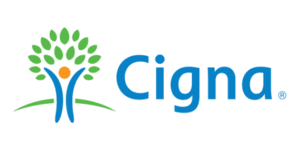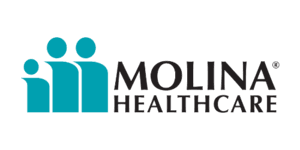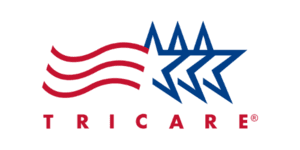Apex Recovery Tennessee Accepts Insurance and
Offers Private Pay Options
Post-traumatic stress disorder (PTSD) is a serious but treatable mental health condition that affects millions of Americans each year. In fact, insights from the National Institute of Mental Health (NIMH) indicate that trauma impacts approximately 50% of adults in the United States during their lifetime.1 Following exposure to traumatic events, many individuals develop symptoms that can significantly impact their quality of life, relationships, and ability to function. The good news, however, is that effective treatments exist that can help individuals manage symptoms and recover from PTSD.
For many people, though, concerns about the cost of treatment can create barriers to seeking the help they need. The financial aspect of mental health treatment can feel overwhelming, especially when someone is already struggling with the debilitating symptoms of trauma. So understanding the various PTSD treatment options and their associated costs is an important first step toward healing. To that end, this guide explores not only the types of treatment but also broad cost parameters and various ways to pay for care.
However, if you or a loved one is ready to seek treatment—or you’d like to talk to someone about your unique situation—reach out to us at Apex Recovery now by calling (877) 630-4077. We provide comprehensive, evidence-based treatment for PTSD throughout Tennessee, with specialized programs designed to meet each individual’s unique needs.
How Much Does PTSD Treatment Cost?
The cost of PTSD treatment varies significantly based on multiple factors, including the level of care, treatment duration, facility type, location, and whether specialized treatments are required.
Treatment costs generally follow a predictable pattern, with more intensive levels of care being more expensive than less intensive options. For example, residential treatment, which provides 24/7 care and includes room and board, typically costs more than outpatient services that meet a few times per week.
Given the varying levels of care, the average cost of PTSD treatment ranges anywhere from roughly $500 to $10,000+ per month.3 It’s important to recognize that the cost should not prevent people from pursuing treatment, as the majority of patients rarely cover the entire expense themselves.
Insurance coverage can significantly reduce the financial burden. And for individuals without insurance coverage, numerous treatment centers, including organizations like Apex Recovery, provide flexible payment arrangements. Our team members can assist you in exploring financial solutions tailored to your specific situation and budget constraints
How Much Does Inpatient Treatment for PTSD Cost?
Inpatient or residential treatment for PTSD represents the most intensive level of care and, consequently, the highest cost option. Most residential PTSD programs include room and board, individual therapy, group therapy, medication management, and additional services like case management and holistic therapies. Some programs may charge extra for certain services or assessments.
Without insurance coverage, the minimum cost of inpatient treatment is $5,300. However, with intensive care and lengthy stays, costs can exceed $50,000.3 Factors that impact the cost of inpatient treatment for PTSD include:
- Length of stay: Programs typically run 30, 60, or 90 days, with longer stays increasing total costs.
- Facility amenities: Basic facilities cost less than those offering premium accommodations or amenities.
- Location: Treatment centers in areas with a higher cost of living generally charge more for their services.
- Specialized services: Programs offering specialized trauma treatments or serving specific populations may have higher costs.
- Staff qualifications: Facilities with highly specialized clinical staff may charge more for their expertise.
The best way to find out exactly how much you’ll pay for care is to reach out to a facility directly. At Apex Recovery, our treatment advisors will explore your needs, answer your questions, and then contact your insurance company to verify benefits and provided a detailed cost explanation for you. If you don’t have insurance, we can also discuss payment plans and alternative financial options.
How Much Does IOP for PTSD Cost?
Similar to inpatient care, costs for an IOP vary according to several factors. While most IOPs include group therapy, individual counseling, and sometimes family therapy or educational components, other components vary by program.
Thus, factors that can impact costs of IOP for PTSD include:
- Program duration: Most IOPs last 8-12 weeks, with longer programs costing more.
- Session frequency: Programs offering more weekly sessions typically have higher costs.
- Additional services: Programs that include psychiatric care, medication management, or specialized therapies may cost more.
- Facility type: Hospital-affiliated programs may have different pricing structures than independent centers.
Generally speaking, IOPs are more affordable than inpatient care, while still providing structured, specialized PTSD treatment. Without insurance, IOPs typically cost between $3,100 and $10,000 for 30 days of care.3
Partial Hospitalization Program (PHP) for PTSD
PHP represents a middle ground between inpatient and standard outpatient care. PHP is a structured treatment program that typically runs five to seven days per week for four to six hours per day. Clients return home each evening but spend most of their days engaged in intensive therapy and treatment activities.
PHP treatment for PTSD typically includes:
- Daily group therapy sessions addressing trauma recovery
- Regular individual therapy using evidence-based approaches
- Psychiatric evaluation and medication management
- Skills development for emotion regulation and distress tolerance
- Case management services to coordinate care
- Holistic therapies and wellness activities
This level of care is particularly well-suited for individuals who need more support than traditional or IOP levels of care but don’t need 24-hour supervision. PHP offers the intensity of treatment like inpatient care while allowing clients to practice skills in their home environment each evening and maintain important connections with their support system.
How Much Does PHP for PTSD Cost?
PHPs represent a middle ground between inpatient and IOP care in terms of both intensity and cost. Thus, costs typically fall between the aforementioned ranges.
PHPs generally include daily group therapy, regular individual therapy, psychiatric services, and sometimes additional therapeutic activities. The specific services included in the daily rate vary by provider.
Factors that impact the cost of PHP treatment include:
- Program duration: Most PHPs last two to four weeks, though some individuals may require longer stays.
- Days per week: Programs operating five days weekly versus seven days weekly have different costs.
- Included services: Programs that include comprehensive psychiatric care and specialized trauma therapies may cost more.
- Geographic location: PHPs in metropolitan areas typically cost more than those in rural settings.
Free Mental Health Disorder Evaluation
Types of Treatment for Post-Traumatic Stress Disorder (PTSD)
PTSD manifests differently for each person who experiences it. Some individuals may have mild symptoms that primarily affect specific aspects of their life, while others may struggle with severe symptoms that impact virtually every area of functioning.
According to the American Psychiatric Association, the source of trauma can vary widely as well. Some individuals develop PTSD following military combat experiences, while others may develop symptoms after a sexual assault, natural disaster, serious accident, or childhood abuse. Merely witnessing as opposed to being involved in these experiences can also lead to PTSD. 2
Because PTSD presents differently based on both the individual and the nature of the trauma, treatment approaches must be tailored accordingly. So before you start searching for “PTSD treatment near me” or even considering the costs of PTSD treatment, let’s explore the various levels of care available.
Residential/Inpatient Program for PTSD
Residential or inpatient treatment for PTSD provides 24/7 structured care in a secure, therapeutic environment. Patients live at the treatment facility for a specified period, typically ranging from 30 to 90 days, receiving round-the-clock support and intensive therapy.
Inpatient PTSD programs typically incorporate a comprehensive approach, including:
- Evidence-based trauma therapies such as Cognitive Processing Therapy (CPT) and Prolonged Exposure therapy (PE)
- Individual therapy sessions
- Group therapy with peers who understand trauma
- Medication management when appropriate
- Holistic approaches like mindfulness, yoga, and art therapy
- Skills development for managing triggers and symptoms
- Nutritional support and physical wellness activities
This intensive level of care is best suited for individuals who:
- Have severe PTSD symptoms that significantly impair daily functioning
- May be at risk of harming themselves or others
- Have co-occurring disorders such as substance use disorders or depression
- Need a break from environmental triggers or stressors
- Have not responded adequately to less intensive forms of treatment
Apex Recovery offers a premier residential treatment program for PTSD near Nashville, providing a safe, structured environment where individuals can fully focus on their recovery journey without the distractions and triggers of everyday life.
Outpatient Program for PTSD
PTSD outpatient treatment allows individuals to receive therapeutic support while continuing to live at home and, in many cases, to maintain work, school, or family responsibilities. This level of care involves regular visits to a treatment center or provider’s office for therapy sessions and other interventions.
As an umbrella term, “outpatient treatment” includes multiple levels of care that vary in intensity and frequency. Standard outpatient therapy typically involves one or two sessions per week. Intensive outpatient programs (IOPs) offer a more structured approach with multiple weekly sessions. Partial hospitalization programs (PHPs) represent the most intensive outpatient option, providing comprehensive care while still allowing patients to return home rather than staying overnight at a facility.
Outpatient PTSD treatment typically includes:
- Regular individual therapy sessions using trauma-focused approaches
- Medication management with a psychiatrist when needed
- Group therapy focused on trauma recovery and skill-building
- Family therapy to help loved ones understand PTSD and support recovery
Outpatient care can be appropriate for individuals who:
- Have moderate PTSD symptoms that don’t require 24/7 supervision
- Have a stable, supportive home environment
- Are transitioning from more intensive treatment
- Can safely manage triggers and symptoms between sessions
At Apex Recovery, we offer comprehensive outpatient PTSD treatment options, allowing clients to receive expert care while maintaining their daily responsibilities and support systems.
Partial Hospitalization Program (PHP) for PTSD
PHP represents a middle ground between inpatient and standard outpatient care. PHP is a structured treatment program that typically runs five to seven days per week for four to six hours per day. Clients return home each evening but spend most of their days engaged in intensive therapy and treatment activities.
PHP treatment for PTSD typically includes:
- Daily group therapy sessions addressing trauma recovery
- Regular individual therapy using evidence-based approaches
- Psychiatric evaluation and medication management
- Skills development for emotion regulation and distress tolerance
- Case management services to coordinate care
- Holistic therapies and wellness activities
This level of care is particularly well-suited for individuals who need more support than traditional or IOP levels of care but don’t need 24-hour supervision. PHP offers the intensity of treatment like inpatient care while allowing clients to practice skills in their home environment each evening and maintain important connections with their support system.
Intensive Outpatient Program (IOP) for PTSD
An IOP provides structured treatment several days per week, typically for three to four hours per session, totaling nine to 12 hours of treatment weekly. This level of care offers more support than standard outpatient therapy while still allowing significant flexibility for work, school, or family responsibilities.
IOPs are particularly beneficial for individuals who have moderate PTSD symptoms that impact functioning but don’t require daily intervention. They also serve those who have completed more intensive treatment and need continued support during their recovery journey. Additionally, IOPs accommodate people with work, school, or family responsibilities that prevent full-day treatment participation, and they’re ideal for individuals who have adequate support systems in place but need more structure than weekly therapy provides.
IOP treatment for PTSD typically includes:
- Group therapy sessions focused on trauma recovery and skill-building
- Regular individual therapy using evidence-based approaches for PTSD
- Psychoeducation about trauma and its effects
- Skill development for managing triggers, flashbacks, and other symptoms
- Peer support and community building
Mental Health Assessment and Screening
Private Mental Health Treatment Centers in Tennessee That Accept Private Pay
For accessible, high-quality care, Apex Recovery Tennessee provides several mental health facilities across the state, offering expert inpatient and outpatient mental health services supported by our 24/7 professional care team Our locations include:
- Apex Recovery Brentwood: 209 Ward Cir, Brentwood, TN 37027
- Apex Recovery Columbia: 2710 Trotwood Ave STE A & B, Columbia, TN 38401
How to Find PTSD Treatment Near Me
If you’re living in Tennessee and seeking treatment for PTSD, you have several options available to you. The state offers various treatment programs comprising different levels of care, from intensive inpatient treatment to flexible outpatient services. Finding the right provider involves considering factors like location, treatment approach, specialization in trauma, and insurance acceptance.
Among your options, Apex Recovery stands out as a premier service provider. Our specialized PTSD treatment programs in the Nashville area offer evidence-based approaches delivered by trauma-informed professionals. Our comprehensive care includes assessment, individualized treatment planning, and multiple levels of care to meet your specific needs.
If you or a loved one is struggling with PTSD, contact our admissions team to learn more about how our programs can help you begin the healing process. Our compassionate staff can guide you through the assessment process, verify your insurance benefits, and help determine which level of care would be most beneficial for your unique situation.
Does Health Insurance Cover PTSD Treatment?
Inpatient or residential treatment for PTSD represents the most intensive level of care and, consequently, the highest cost option. Most residential PTSD programs include room and board, individual therapy, group therapy, medication management, and additional services like case management and holistic therapies. Some programs may charge extra for certain services or assessments.
Without insurance coverage, the minimum cost of inpatient treatment is $5,300. However, with intensive care and lengthy stays, costs can exceed $50,000.3 Factors that impact the cost of inpatient treatment for PTSD include:
- Length of stay: Programs typically run 30, 60, or 90 days, with longer stays increasing total costs.
- Facility amenities: Basic facilities cost less than those offering premium accommodations or amenities.
- Location: Treatment centers in areas with a higher cost of living generally charge more for their services.
- Specialized services: Programs offering specialized trauma treatments or serving specific populations may have higher costs.
- Staff qualifications: Facilities with highly specialized clinical staff may charge more for their expertise.
The best way to find out exactly how much you’ll pay for care is to reach out to a facility directly. At Apex Recovery, our treatment advisors will explore your needs, answer your questions, and then contact your insurance company to verify benefits and provided a detailed cost explanation for you. If you don’t have insurance, we can also discuss payment plans and alternative financial options.
Check Your Insurance with Apex Recovery
Apex Recovery accepts insurance and offers assistance in checking your mental health coverage levels. Knowing which programs your health insurance includes is a key step in receiving mental health treatment. Our experienced team is here to guide you through this process, making it easier to access the recovery treatments covered by your plan.
How Much Does PTSD Treatment Cost Without Insurance?
Without insurance coverage, the cost of PTSD treatment varies considerably depending on the level of care required. While a single therapy session might cost $100-$200 per session, more intensive options like residential treatment can cost thousands of dollars per week.3,5
The primary factors affecting out-of-pocket costs include:
- Level of care: Residential treatment is more expensive than outpatient options.
- Treatment duration: Longer treatment periods naturally increase total costs.
- Provider credentials: Specialists with advanced training in trauma therapy may charge higher rates.
- Geographic location: Treatment costs tend to be higher in areas with a higher cost of living.
Even without insurance coverage, several options exist to make PTSD treatment more affordable:
- Payment plans: Many treatment centers like Apex Recovery offer monthly payment options to spread costs over time.
- Sliding scale fees: Some providers adjust rates based on income and ability to pay.
- Scholarships or grants: Some facilities offer financial assistance for those who qualify.
- State-funded programs: Public mental health clinics often provide services at reduced rates.
- Veterans benefits: Former military personnel may qualify for VA healthcare coverage.
At Apex Recovery, we believe that financial constraints shouldn’t prevent access to quality PTSD treatment. Our treatment advisors can discuss various payment options, including private pay rates, payment plans, and potential financial assistance. We work with each client individually to find the most accessible path to treatment and recovery.
If you or someone you love is struggling with PTSD, reach out to learn more about our PTSD treatment options by calling (877) 630-4077. At Apex Recovery, our compassionate team is ready to guide you through the process, from insurance verification to creating a personalized treatment plan that addresses your unique needs and circumstances.











Check Your Health Insurance Coverage
"*" indicates required fields
- National Institute of Mental Health. (n.d.). Post-Traumatic Stress Disorder (PTSD).
- American Psychiatric Association. (2022). What is Posttraumatic Stress disorder (PTSD)?
- National Drug Helpline. (2023). The Cost of Drug & Alcohol Rehab in 2023.
- U.S. Department of Veterans Affairs. (2025). PTSD: National Center for PTSD.
- Psychology Today. (n.d.). Therapy Center.
